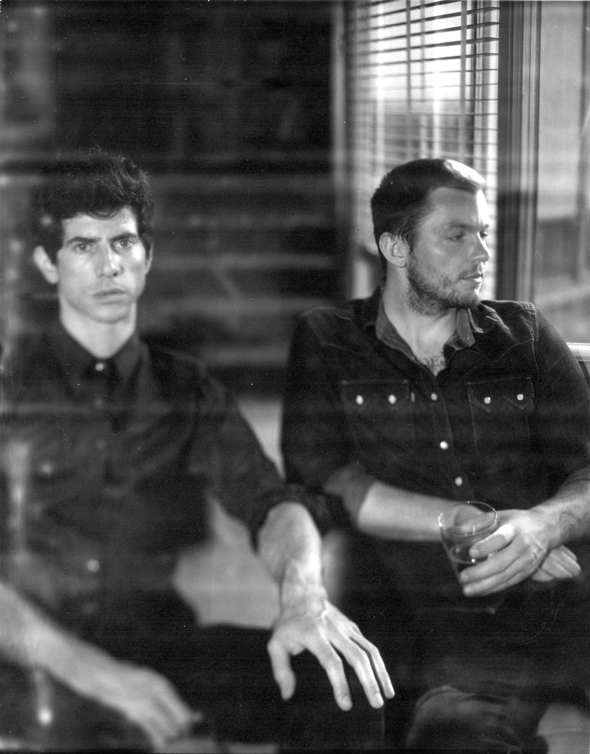
Two years ago, singer Darian Zahedi and drummer/guitarist Jon Safley were playing together in a band that gave them little musical or personal satisfaction. Both had a wide range of influences, including psychedelic California pop, new wave dance music and ambient rock, so they ditched the band and started writing the emotionally charged songs that became Limerence, their debut album as The Reflections.
The vocals on Limerence have a dreamy quality to them, balanced by the crisp, aggressive attack of the instrumental tracks.
Darian Zahedi: Some of the songs did start as dreams. “On and On” was a dream I had, a long scenario that went in and out of various situations, with one little piece of melody at the end. The initial burst may come in a dream, but it’s what you do to it when you’re awake that makes it real. You have a feeling or a melody, but the conscious mind has to edit the subconscious impulse.
Jon Safley: We like duality, and that tension is a reflection of who we are as people and what kind of music we’re interested in. The inspiration is Phil Spector’s Wall of Sound, the Beach Boys and a lot of ‘60s pop, with dense layered vocals. Rhythmically, I like Afrobeat and music with a lot of drumming and percussion organized into elements that make musical sense.
You call the album Limerence, a word that describes the ebullient flush you feel when you first fall in love, but most of the songs are about heartache. Is the title ironic?
Zahedi: There’s an actual chemical reaction in the body when you’re in love or infatuated, but that rush has a time limit. At some point, it goes and you never get it back. It’s part of the package that includes the loss of love, the confusion you feel when it’s gone, and the desire to get it back. Or wondering if you should try to get it back, or carry on with someone new. We were on opposite sides of that feeling when we were making the record. I was ending a relationship and Jon was just starting one. A person in love is on a natural high and it’s all they can talk or think about. The person on the other end is at the bottom and that’s all they can talk or think about. We wrote songs looking at love from the opposite ends of an extreme experience. Limerence has a time limit and that’s the tragic part of it. There’s no irony, just reality. You don’t know how good love is until it’s gone.
What was the writing and recording process like? Do you both contribute equally?
Zahedi: I have a writing studio in a weird Hollywood building surrounded by drug addicts and transvestite prostitutes. Inside the building there are dozens of pop and hip-hop musicians. The rooms aren’t soundproofed, so we all hear each other. Jon and I would get together, have a couple of drinks and go to it. Sometimes we’d go nowhere, sometimes we’d write three songs in one night. We knew we wouldn’t have a budget, so we made complete demos during our pre-production process, with drums, keys and all the other parts played on synthesizers. With everything mapped out, we could replicate it in the studio using real instruments without spending too much money.
Many new bands these days, including the Reflections, are writing songs that are more truthful about the limits of life, love and relationships. Is this a generational shift?
Zahedi: It’s just where we are in the evolution of pop music. “By the Light of the Silvery Moon” was popular in 1909, but by the 1930s, you have Cole Porter and Billie Holiday and genuine expressions of heartbreak, regret and loss. It’s not a modern thing. Someone in their living room in 1933 was taking solace from popular music, and we still have that today, influenced by what’s happened culturally and politically in the last half a century. There’s also a movement in pop that’s very irreverent and ironic. In some generations, it’s not popular to be honest, but we had no choice. We had to make an honest record. We couldn’t have done it any other way.
Safley: We were both in very intense personal situations when we wrote and recorded the album, on opposite ends of the spectrum, and that came out in the writing. As far as pop music and culture goes, I may know who Lady Gaga is, but that world has no appeal for me. I’m interested in music that’s ambient, experimental and noisy. I like creating textures and environments for a song to live in. I’m more interested in the result of our creative process than any reward we may get.
Text by J. Poet
Photography by Adam Goldberg

